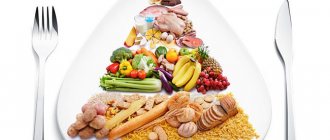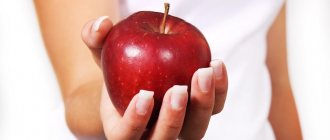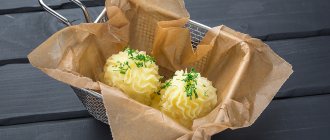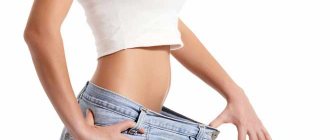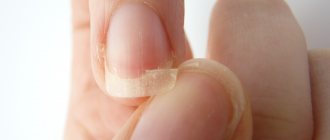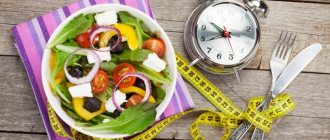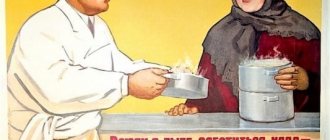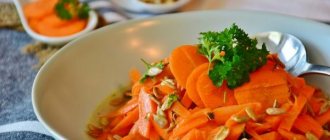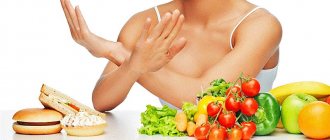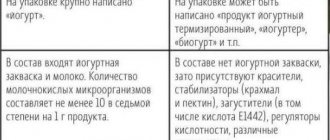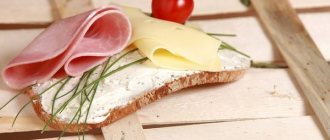Many people strive to get rid of unnecessary pounds. The Chinese diet is one of the most effective ways to combat those hated kilograms. You just have to look at the women in the Middle Kingdom to understand: they are unlikely to suffer from obesity. Chinese women are always fit women with a thin waist and no noticeable fat layer. This is a consequence of their diet, which is balanced and healthy. They consistently consume the required amount of nutrients, and also adhere to the principle of restraint, that is, they do not overeat. If you want to lose weight, then you can try to eat according to the principles of Chinese women.
The Chinese diet has very strict rules. Residents of the Celestial Empire adhere to restraint in nutrition, which sometimes borders on asceticism. They refuse many harmful foods and do not consume them under any circumstances. Therefore, you need to be prepared for the fact that you will have to eat in accordance with strict principles. The slightest deviation from the rules will lead to loss of effectiveness and the return of extra pounds.
General rules
This diet is the most strict, not everyone can withstand it, so before you start, you should think about whether the body can live in this mode for 2-3 weeks.
The diet menu is extremely meager and completely excludes salty and sweet foods and alcohol. Portions are minimal (no more than 200 grams per meal), and there is also a time limit - the last meal should be no later than 6 pm.
There are 2 types of diet:
- classical;
- tough.
The basis includes: rice, boiled meat, vegetables and fruits. In 2-3 weeks of such nutrition you can lose from 10 to 15 kg.
Its main principles are the restructuring of metabolism in the body and achieving a balance of yin and yang energies.
Nutritionists recommend cleansing the intestines and the body as a whole before starting a diet, this will increase efficiency. You should also pay close attention to your drinking regime and drink 2 glasses of warm water on an empty stomach in the morning.
Nutritional Features
The Chinese diet implies strict adherence to all dietary requirements; even a minimal deviation from it will reduce effectiveness and weight loss will occur at a slower pace.
So, the basic rules:
- water regime - drink 1500 ml or more water per day;
- complete exclusion of salt and sugar;
- replacing sunflower oil with olive oil;
- baked or steamed low-fat fish: hake, pollock, river perch, bream and others. To improve the taste, you can add black pepper, ginger, dried garlic;
- You can drink only brewed, natural coffee without any additives (sugar, cream, milk, etc. are completely excluded);
- green tea recommended. It normalizes metabolic processes in the body, improves metabolism, which helps to increase the effectiveness of the diet;
- Red and brown rice are allowed for consumption; it can be combined with vegetables. It has the following beneficial properties: reducing salt deposits in the body, reducing swelling of the face and limbs, removing excess fluid;
- vegetables are allowed in raw or heat-treated form. It is recommended to add Chinese cabbage to salads, which has a positive effect on the functioning of the gastrointestinal tract, especially the intestines;
- fruits can be eaten raw without heat treatment. It is worth paying attention to baked apples, due to their high pectin content, they have a beneficial effect on the microflora of the large intestine.
Advantages
Among the benefits of the diet, along with weight loss (up to 7 kg in 7 days), one can highlight the appearance of lightness in the body by improving intestinal function and removing toxins from the body, normalizing complexion, and increasing skin turgor.
Cons of the diet
Despite all its advantages, it also has negative sides:
- general health worsens due to increased fatigue and weakness;
- sleep is disturbed;
- irritability increases;
- dehydration is possible due to insufficient salt intake in the body;
- a very strong feeling of hunger, sometimes even painful, which cannot be drowned out by anything;
- the diet is extremely unbalanced, so before you start this way of eating, you should check with a doctor for the presence of chronic diseases and think carefully before starting it - what it will bring more: harm or benefit.
Contraindications
Contraindications to the Chinese diet:
- pregnancy and breastfeeding;
- age under 18 years;
- the presence of chronic diseases of the digestive system, especially during exacerbation;
- increased physical and mental stress;
- A diagnosis of diabetes mellitus is a strict contraindication to the use of such a diet.
Contraindications
Dietitians recommend that you undergo a consultation and undergo minimal tests. Many nutritional systems have similar contraindications, this one is no exception. Below is a list of those who are prohibited from eating according to the Chinese method:
- teenagers and older people due to the heavy load on the body;
- women during pregnancy and lactation;
- people with diseases of the gastrointestinal tract;
- persons with kidney and liver problems;
- if you are allergic to any product from the approved list of products;
- diseases of the cardiovascular system.
Strict diet for 1 week
It includes a minimal set of products and their volume, but the effect from it will not take long to arrive. During the period of such nutrition, you can lose up to 10 kg of weight. Sample menu:
- breakfast - a small piece of yesterday's bread, a hard-boiled egg, a cup of black coffee;
- lunch – a slice of boiled lean meat (50-60 g), fruit or vegetable salad;
- afternoon snack – 100 grams of green peas and low-fat processed cheese;
- dinner – 100 ml of warm milk.
It is worth remembering that all products are consumed without salt and sugar; the drinking regime implies drinking at least 1.5 liters of water per day.
Diet for 7 days - classic
Implies a wider range of products compared to a strict one. At the same time, the drinking regime is exactly the same.
The last meal is at least 3 hours before bedtime. The portion size is determined by the person losing weight, but it is recommended to consume no more than 200 grams per meal, then the effect of the diet will be maximum. It is also salt-free.
The table shows an approximate diet for a week.
| Day of the week | Morning | Day | Evening |
| 1 | Black coffee | Cabbage salad with tomato, 2 boiled eggs | Cabbage salad, steamed or boiled fish |
| 2 | Black coffee | Baked fish with cabbage | 100-200 ml kefir, a piece of boiled beef |
| 3 | Milk | Boiled carrots, omelette | Pears, apples |
| 4 | Coffee or green tea | Parsnip root, fried in oil, apples | Omelette, boiled beef, cabbage salad |
| 5 | Carrots, grated | Baked fish, 100-200 ml tomato juice | Baked fish with cabbage garnish |
| 6 | Black coffee | Boiled chicken breast, vegetables | Raw carrots, scrambled eggs |
| 7 | Herbal or green tea | Boiled meat, vegetables | Any of the dinner options |
Diet for 2 weeks
Based on the 7-day classic diet, but with some expansion in nutrition. In the morning, you can add a small piece of yesterday’s bread or unsweetened cracker to the drink; for lunch, 2 times a week you can add a little boiled rice (no more than 150 grams).
If you fully follow the recommendations, you can get rid of 7-10 kg of excess weight.
3 week diet
It is based on changing dishes weekly, that is, during all 7 days the menu is the same from day to day and the diet changes only the next week. Because of such monotony in nutrition, it is extremely difficult to maintain it. But if a person losing weight copes with hunger and other negative satellites of losing weight, he will receive a pleasant bonus in the form of a reduction in fat deposits on the stomach, thighs and other parts of the body.
The main products and principles used in this diet:
- 3 meals a day, for one meal - boiled egg and orange. You can add, but not more than 200 grams, boiled beef or fish, cabbage salad or tomato juice;
- For all 3 meals, eat porridge cooked in water. During the day they eat only one type. Semolina and pearl barley are excluded due to their high calorie content;
- Vegetables and fruits (unsweetened) are allowed to be consumed, raw or processed.
If you feel unwell during a diet, you should expand your diet or abandon it completely.
What Eastern Medicine Says
Any diet can be both beneficial and lead to serious health problems. Therefore, healers select a dietary diet for each person individually. This depends not only on the person’s health status, but also on his age.
Chinese doctors recommend separate meals for teenagers to lose weight. Between the ages of 21 and 42, a person should eat a varied diet and get all the necessary substances, that is, vegetarianism is excluded.
But after 42 years, you can do half-day fasting or fasting days. According to doctors, the older a person is, the smaller the portions of food should be, and the more hungry days there should be - this prolongs life.
On Chinese cabbage
This type of diet is very effective. This is due to the fact that Chinese (Peking) cabbage is one of the few foods with negative calories. That is, the body requires more energy to digest it than is supplied from it. Thanks to this property, it is indispensable in the diet of people watching their weight.
There are several options for such a diet:
- During the day, eat no more than 500 grams of boiled chicken breast and Chinese cabbage in any form and quantity. It is not recommended to stay on such a diet for more than 7 days, as it is extremely unbalanced;
- This option is suitable for people who want to lose some weight, but without resorting to extreme measures. There is no need to change your diet much - it is recommended to replace dinner with Chinese cabbage salad and slightly limit your consumption of sweet and salty foods. With this approach, you can lose up to 6 kg per month;
- Helps not only reduce weight, but also improve metabolism. Stick to this diet for 2-4 weeks. For breakfast - cabbage salad and 2 eggs, lunch - salad and light soup, afternoon snack - 100 grams of low-fat cottage cheese, dinner - boiled chicken breast or a piece of beef with cabbage salad. You can snack on an apple and drink 200 ml of low-fat kefir before going to bed.
Advantages and disadvantages
The Chinese food system is quite radical, so it does not have obvious advantages. Of course, excess weight goes away, but at what cost:
- a meager, monotonous menu can cause a breakdown;
- an insufficient amount of vitamins, minerals, nutrients can lead to serious problems with the body and all its systems;
- a tasteless menu of the same type, a lack of elements important for the body can cause the development of psycho-emotional disorders.
In addition, the weight lost during the diet will return in the next two to three weeks after its end, even in greater amounts. An organism that has experienced severe stress will recover by all means and store nutrients in the form of fat “in reserve.”
Chinese Puer tea diet
If you follow the conditions for losing weight, you can easily lose several kilograms in 7 days without seriously changing your usual diet. In order to get rid of extra pounds, one meal is replaced with tea.
For a faster effect, you should slightly reduce the amount of sweets and confectionery. Tea has a pleasant feature - it dulls the feeling of hunger, which will help in the process of losing excess weight.
When turning to this diet for help, you should pay attention to some points:
- tea must be natural; cheap substitutes will not have the desired effect;
- due to the caffeine content, it is not recommended to consume it after 6 pm, as in this case it can cause insomnia;
- a fresh batch of tea is brewed daily;
- It’s worth trying different varieties and choosing the one you like;
- tea is brewed in a ceramic container at a water temperature of no more than 80 degrees.
Due to its pronounced antioxidant effect, tea will help cleanse the body of accumulated waste and toxins.
Fully or partially limited products
If your hunger is too strong and you feel unwell, you can eat a piece of stale bread, some sweet fruits or berries (plum, watermelon, strawberries). It is not allowed to eat canned food, pickled, salted or fried foods. List of prohibited foods:
| Product group | Name |
| Starchy vegetables | Potatoes, beets, radishes, corn, mature peas, dry beans |
| Flour products | Pasta, noodles, bread, baked goods |
| Spices, additives | Sugar, salt, unnatural seasonings |
| Sweet fruits, berries | Bananas, melons, dried fruits, pineapples, persimmons, grapes |
| Confectionery | Cakes, pastries, souffles, marshmallows, marshmallows, Turkish delight, etc. |
| Animal fat | Butter, lard, lard |
| Fat meat | Pork, old beef with layers of fat |
| Dairy | Milk, sour cream, cream |
| Sauces | Ketchup, mayonnaise, soy sauce with harmful additives |
| Alcoholic drinks | All types |
